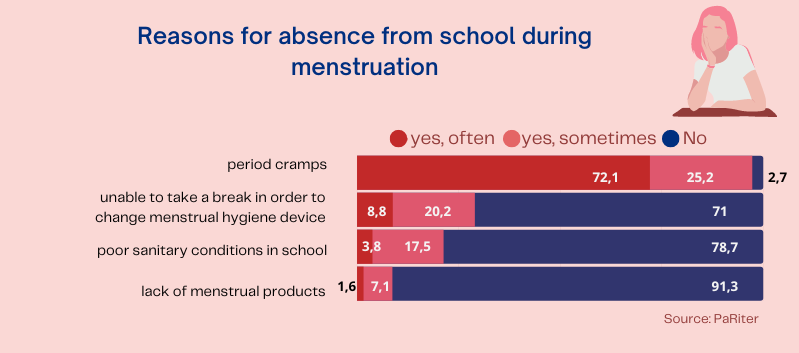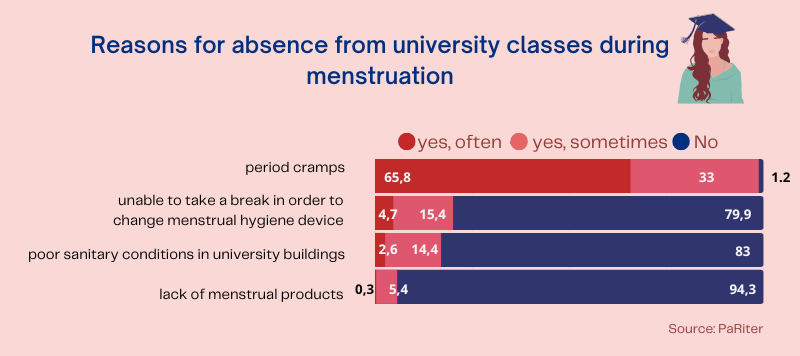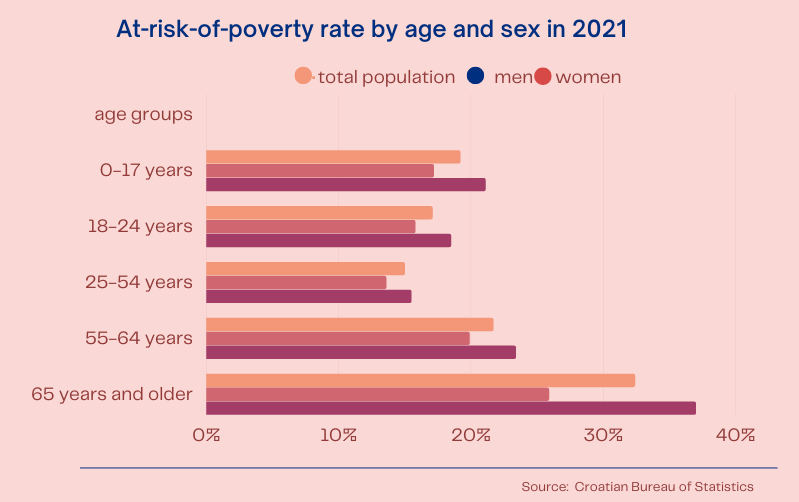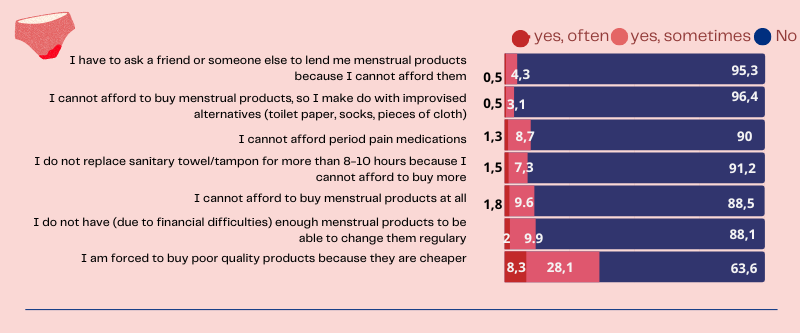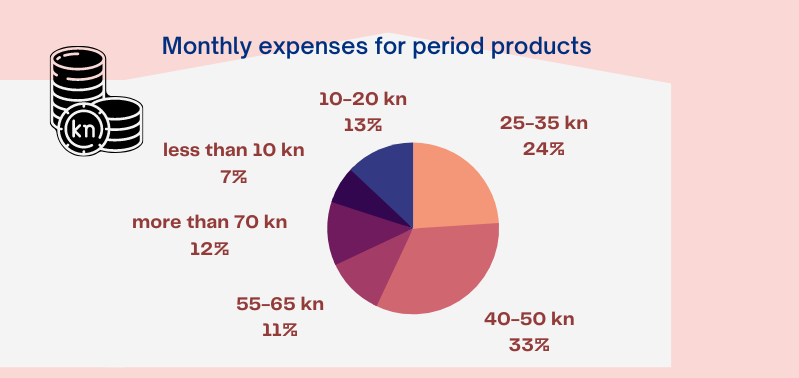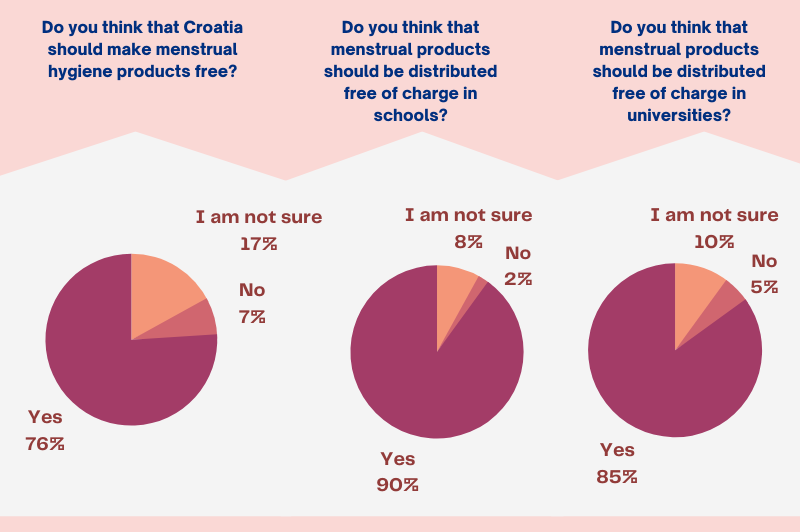Croatia, let’s finally talk about menstruation poverty
Recent research on menstrual poverty in Croatia, conducted by the PaRiter association, has allowed the issue of menstruation to be addressed by educational institutions. Various initiatives to make menstrual products free
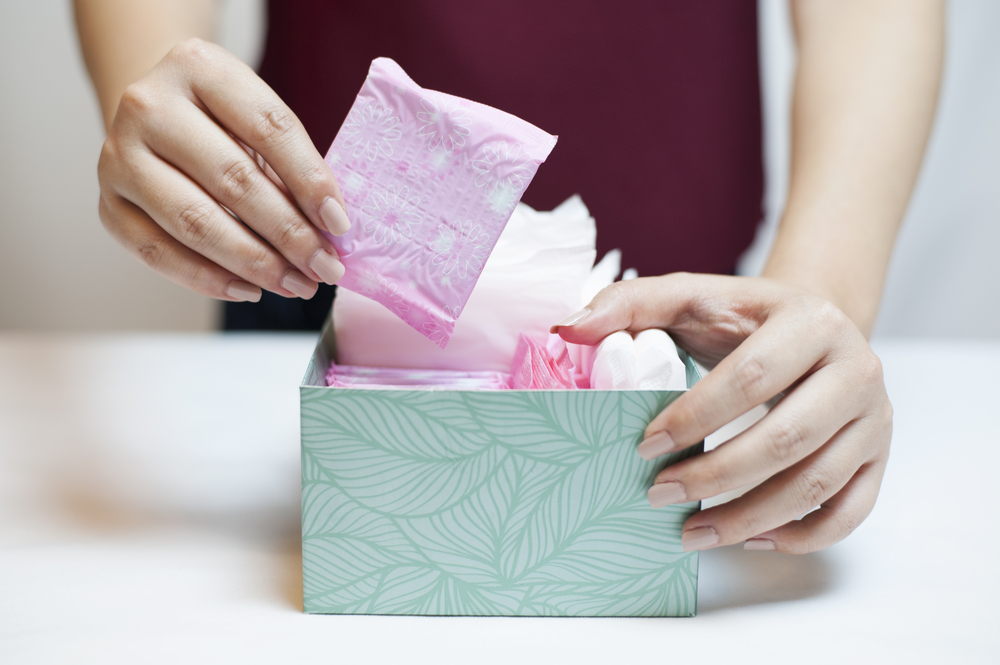
Croatia-menstruation-as-a-social-issue
© Kunlanan Yarist/Shutterstock
(Originally published by H-Alter , 9th september 2022)
“Initially the idea aroused some surprise, but eventually it was positively welcomed by female students. At first we decided to entrust the distribution of period products to some school employees, but then we realised that these products must be available in sanitation and hygiene facilities”, explains Snjezana Klaric, director of the High School of Engineering and Transport in Varazdin, the first educational institution in Croatia to make period products available to female students.
It was a research project carried out by the Association for human rights and civic partecipation PaRiter from Rijeka that prompted Snjezana Klaric to organise this initiative, launched in March 2021. Worrying data that emerged from the research in question – conducted on a sample of over 6000 women and published in February 2021 – allow us to understand the real extent of the phenomenon of period poverty in Croatia.
The study revealed that in Croatia a third of women are forced to save on sanitary towels, deemed too expensive, including by purchasing poor quality products. Over 10% of Croatian women cannot afford to buy enough sanitary towels to change them regulary. The same percentage of women cannot afford sanitary pads at all.
The research conducted by PaRiter also showed that period poverty affects girls’ and women’s access to education and work. 60% of the girls interviewed said they missed school several times because of their period, 8,7% of whom cited lack of access to menstrual products as the main reason for being unable to attend school regulary during menstruation. University students experience a similar situation: 68,1% of female students skipped classes at least once because of their period, 5,7% of these report difficulties in accessing menstrual products. As for women who work, 28,7% at least once were unable to go to work during their period, sometimes due to lack of access to menstrual hygiene products (3,4%).
“We have addressed period poverty as a phenomenon which, while being omnipresent, often goes unnoticed for a variety of reasons, including shame, but also the stigma, imposed by a patriarchal society, which makes it impossible to talk about this issue. We were surprised by what happened after the publication of the results [of the aforementioned research], not because we did not hope for a similar reaction, but because we are used to working in a community that has rarely been capable of recognising ‘special needs’, even when it comes to very widespread, not at all special needs”, explains Marinella Matejcic of PaRiter.
The publication of the research on period poverty has sparked an avalanche of initiatives. Following the example of the High School of Engineering and Transport in Varazdin, many other educational institutions and universities from all over Croatia have decided to make available free menstrual products, including the High School “Vladimir Gortan” in Buje, the Gymnasium in Pula, the Technical Institute “Rudjer Boskovic” (Vinkovci), the elementary school “Radic Brothers” (Pakrac), the high school “Slava Raskaj” (Ozalj), the Gymnasium in Sisak, the Institute for Social Research in Zagreb, the University of Zagreb, the University of Pula, the Faculty of Economics of the University of Osijek, Aspira University College in Split. Many local administrations have also decided to take action to combat period poverty, including some municipalities (Rijeka, Karlovac, Lepoglava, Varazdin, Cavle, Zapresic, Jastrebarsko, Sibenik) and counties (the Zagorje-Krapina county and the Split-Dalmatia county among others).
“We are happy not only with the fact that many educational institutions and local administrations have decided to take action, but also because a paradigm shift has taken place regarding the topics considered suitable to be addressed in a public debate. The battle against period poverty is an issue of public interest that overcomes ideological differences. We are happy that many realities, with different political ideas, have joined the initiative, which turned out to be one of the rare examples of good practices aimed at solving real problems, regardless of political differences”, Matejcic says.
The need for such interventions in schools is also shown by the data released by the Croatian Bureau of Statistics according to which in Croatia the rate of girls aged 12-17 at risk of poverty is 23,7%. Poverty makes girls particulary vulnerable, also hindering them in exercising the right to education.
Since January of this year all public primary schools in Rijeka provide free menstrual products. Several sanitary napkin dispensers have been installed in school bathrooms and pupils can use them for free. The idea came from deputy major of Rijeka Sandra Krpan who, after the publication of the abovementioned research, took steps to launch a call for tenders for the supply of sanitary pads to be distributed to the city’s primary schools. To this end, the City of Rijeka allocated 165.805 kune (about 22,000 Euros) for 2021, showing willingness to carry on the initiative also in the coming years.
“We have not encountered any obstacles”, explain the representatives of the City of Rijeka, pointing out that “political will and the ability to understand a broader context, as well as to take a gender perspective during work and the decision making process are of great importance in the fight for gender equality and in reducing discrimination in society. The free distribution of sanitary towels is only one of the measures taken as part of an initiative aimed at introducing health education [in primary schools in Rijeka] as an extracurricular subject”.
The employees of the High School of Engineering and Transport in Varazdin also perceive the free menstrual product distribution campaign as a positive experience. They explain that, contrary to what some people feared, the products made available are not wasted. The school independently provides for the financing of the initiative, allocating around 200-300 kune (25-40 Euros) per month for this purpose.
“Our school has 600 students, 110 of whom are girls. There is no doubt that schools with more girls should allocate larger sums to the distribution of free menstrual products. But regardless of the resources available, all schools should undertake similar initiatives. In our school we started talking more openly about menstruation. The issue is being discussed during class meetings as well, and it is another positive aspect of the whole initiative”, explains Snjezana Klaric.
In addition to the local level, period poverty was also discussed at the Sabor (Croatian parliament) which recently approved the proposal to reduce VAT rate on female hygiene products from 23 to 15%. However, PaRiterbelieves that this tax should be definitively abolished.
“The very existence of this tax is a clear message to women: you are subject to this tax because you have period, that is, because you are not male. Of course, there are women who do not have periods for various reasons, but now we are not talking about them. We are talking about a multitude of women of working age who are forced to pay a tax on a physiological function. It is true that [the VAT on menstrual products] has been reduced to 15%, but we are interested in analysing this measure in relation to current prices. It is necessary to clarify whether those who sell period products have adjusted their prices to the current situation. The VAT on period products has a double meaning, therefore it is necessary to analyse the prices in order to understand the real effects of this measure”, explains Marinella Matejcic, adding that during the parlamentary debate on the reduction of VAT some deputies indulged in very rude comments regarding menstruation.
“There was a discussion about menstruation, so a positive change took place, but it remained limited at only one level. For the idea of menstruation as something dirty to be definitively deconstructed and for the menstrual cycle to be de-stigmatised, it is necessary to introduce sexual education in schools and educate citizens: embarrassment and shame are fought with knowledge”, Matejcic says.
Since the Varazdin high school offers various courses in the manufacturing field, the students themselves made the drawers to store the hygienic products, which were installed in school bathrooms. The school, however, does not intend to stop there. The environmental dimension of the issue is also being taken into account. One of the questions addressed concerns the possibility of reducing waste by using more durable products, like menstrual cups and washable pads.
“The other half of the story is about waste management. However, the distribution of eco-sustainable products requires a more systemic approach. In any case, we intend to launch an education campaign on these issues”, explains Snjezana Klaric.
The members of PaRiteralso believe that, in addition to the abolition of VAT on period products and the introduction of sexual education in schools, it is necessary to launch a campaign to promote sustainable hygiene products. According to PaRiter, it is also imperative to tackle various discriminatory practices – including the tendency of many employers to prevent female workers from going to the bathroom to change sanitary pads – and make free menstrual products available in all educational institutions and workplaces.
In Croatia in 2021 the at-risk-of-poverty rate among women stood at 37%, against 25.9% among men. These data clearly show that Croatian women live in more disadvantaged conditions than their male compatriots.
“There is still a lot to do and it is a committment that involves many actors. It may seem strange that there is so much talk about a seemingly insignificant issue, but the menstrual cycle and the right to personal hygiene are far from insignificant. These are issues that affect the lives of many women and families”, Marinella Matejcic concludes.
This material is published as part of the project “INGRID. Intersecting Grounds of Discrimination in Italy", co-financed by the European Commission in the framework of the REC (Rights, Equality, Citizenship) 2014-2020 programme. The content of this article represents the point of view of the authors only and is their sole responsibility. The EC takes no responsibility for the use that may be made of the information contained therein. Visit the page of project INGRID
Tag: Women
Featured articles
- Take part in the survey
Croatia, let’s finally talk about menstruation poverty
Recent research on menstrual poverty in Croatia, conducted by the PaRiter association, has allowed the issue of menstruation to be addressed by educational institutions. Various initiatives to make menstrual products free

Croatia-menstruation-as-a-social-issue
© Kunlanan Yarist/Shutterstock
(Originally published by H-Alter , 9th september 2022)
“Initially the idea aroused some surprise, but eventually it was positively welcomed by female students. At first we decided to entrust the distribution of period products to some school employees, but then we realised that these products must be available in sanitation and hygiene facilities”, explains Snjezana Klaric, director of the High School of Engineering and Transport in Varazdin, the first educational institution in Croatia to make period products available to female students.
It was a research project carried out by the Association for human rights and civic partecipation PaRiter from Rijeka that prompted Snjezana Klaric to organise this initiative, launched in March 2021. Worrying data that emerged from the research in question – conducted on a sample of over 6000 women and published in February 2021 – allow us to understand the real extent of the phenomenon of period poverty in Croatia.
The study revealed that in Croatia a third of women are forced to save on sanitary towels, deemed too expensive, including by purchasing poor quality products. Over 10% of Croatian women cannot afford to buy enough sanitary towels to change them regulary. The same percentage of women cannot afford sanitary pads at all.
The research conducted by PaRiter also showed that period poverty affects girls’ and women’s access to education and work. 60% of the girls interviewed said they missed school several times because of their period, 8,7% of whom cited lack of access to menstrual products as the main reason for being unable to attend school regulary during menstruation. University students experience a similar situation: 68,1% of female students skipped classes at least once because of their period, 5,7% of these report difficulties in accessing menstrual products. As for women who work, 28,7% at least once were unable to go to work during their period, sometimes due to lack of access to menstrual hygiene products (3,4%).
“We have addressed period poverty as a phenomenon which, while being omnipresent, often goes unnoticed for a variety of reasons, including shame, but also the stigma, imposed by a patriarchal society, which makes it impossible to talk about this issue. We were surprised by what happened after the publication of the results [of the aforementioned research], not because we did not hope for a similar reaction, but because we are used to working in a community that has rarely been capable of recognising ‘special needs’, even when it comes to very widespread, not at all special needs”, explains Marinella Matejcic of PaRiter.
The publication of the research on period poverty has sparked an avalanche of initiatives. Following the example of the High School of Engineering and Transport in Varazdin, many other educational institutions and universities from all over Croatia have decided to make available free menstrual products, including the High School “Vladimir Gortan” in Buje, the Gymnasium in Pula, the Technical Institute “Rudjer Boskovic” (Vinkovci), the elementary school “Radic Brothers” (Pakrac), the high school “Slava Raskaj” (Ozalj), the Gymnasium in Sisak, the Institute for Social Research in Zagreb, the University of Zagreb, the University of Pula, the Faculty of Economics of the University of Osijek, Aspira University College in Split. Many local administrations have also decided to take action to combat period poverty, including some municipalities (Rijeka, Karlovac, Lepoglava, Varazdin, Cavle, Zapresic, Jastrebarsko, Sibenik) and counties (the Zagorje-Krapina county and the Split-Dalmatia county among others).
“We are happy not only with the fact that many educational institutions and local administrations have decided to take action, but also because a paradigm shift has taken place regarding the topics considered suitable to be addressed in a public debate. The battle against period poverty is an issue of public interest that overcomes ideological differences. We are happy that many realities, with different political ideas, have joined the initiative, which turned out to be one of the rare examples of good practices aimed at solving real problems, regardless of political differences”, Matejcic says.
The need for such interventions in schools is also shown by the data released by the Croatian Bureau of Statistics according to which in Croatia the rate of girls aged 12-17 at risk of poverty is 23,7%. Poverty makes girls particulary vulnerable, also hindering them in exercising the right to education.
Since January of this year all public primary schools in Rijeka provide free menstrual products. Several sanitary napkin dispensers have been installed in school bathrooms and pupils can use them for free. The idea came from deputy major of Rijeka Sandra Krpan who, after the publication of the abovementioned research, took steps to launch a call for tenders for the supply of sanitary pads to be distributed to the city’s primary schools. To this end, the City of Rijeka allocated 165.805 kune (about 22,000 Euros) for 2021, showing willingness to carry on the initiative also in the coming years.
“We have not encountered any obstacles”, explain the representatives of the City of Rijeka, pointing out that “political will and the ability to understand a broader context, as well as to take a gender perspective during work and the decision making process are of great importance in the fight for gender equality and in reducing discrimination in society. The free distribution of sanitary towels is only one of the measures taken as part of an initiative aimed at introducing health education [in primary schools in Rijeka] as an extracurricular subject”.
The employees of the High School of Engineering and Transport in Varazdin also perceive the free menstrual product distribution campaign as a positive experience. They explain that, contrary to what some people feared, the products made available are not wasted. The school independently provides for the financing of the initiative, allocating around 200-300 kune (25-40 Euros) per month for this purpose.
“Our school has 600 students, 110 of whom are girls. There is no doubt that schools with more girls should allocate larger sums to the distribution of free menstrual products. But regardless of the resources available, all schools should undertake similar initiatives. In our school we started talking more openly about menstruation. The issue is being discussed during class meetings as well, and it is another positive aspect of the whole initiative”, explains Snjezana Klaric.
In addition to the local level, period poverty was also discussed at the Sabor (Croatian parliament) which recently approved the proposal to reduce VAT rate on female hygiene products from 23 to 15%. However, PaRiterbelieves that this tax should be definitively abolished.
“The very existence of this tax is a clear message to women: you are subject to this tax because you have period, that is, because you are not male. Of course, there are women who do not have periods for various reasons, but now we are not talking about them. We are talking about a multitude of women of working age who are forced to pay a tax on a physiological function. It is true that [the VAT on menstrual products] has been reduced to 15%, but we are interested in analysing this measure in relation to current prices. It is necessary to clarify whether those who sell period products have adjusted their prices to the current situation. The VAT on period products has a double meaning, therefore it is necessary to analyse the prices in order to understand the real effects of this measure”, explains Marinella Matejcic, adding that during the parlamentary debate on the reduction of VAT some deputies indulged in very rude comments regarding menstruation.
“There was a discussion about menstruation, so a positive change took place, but it remained limited at only one level. For the idea of menstruation as something dirty to be definitively deconstructed and for the menstrual cycle to be de-stigmatised, it is necessary to introduce sexual education in schools and educate citizens: embarrassment and shame are fought with knowledge”, Matejcic says.
Since the Varazdin high school offers various courses in the manufacturing field, the students themselves made the drawers to store the hygienic products, which were installed in school bathrooms. The school, however, does not intend to stop there. The environmental dimension of the issue is also being taken into account. One of the questions addressed concerns the possibility of reducing waste by using more durable products, like menstrual cups and washable pads.
“The other half of the story is about waste management. However, the distribution of eco-sustainable products requires a more systemic approach. In any case, we intend to launch an education campaign on these issues”, explains Snjezana Klaric.
The members of PaRiteralso believe that, in addition to the abolition of VAT on period products and the introduction of sexual education in schools, it is necessary to launch a campaign to promote sustainable hygiene products. According to PaRiter, it is also imperative to tackle various discriminatory practices – including the tendency of many employers to prevent female workers from going to the bathroom to change sanitary pads – and make free menstrual products available in all educational institutions and workplaces.
In Croatia in 2021 the at-risk-of-poverty rate among women stood at 37%, against 25.9% among men. These data clearly show that Croatian women live in more disadvantaged conditions than their male compatriots.
“There is still a lot to do and it is a committment that involves many actors. It may seem strange that there is so much talk about a seemingly insignificant issue, but the menstrual cycle and the right to personal hygiene are far from insignificant. These are issues that affect the lives of many women and families”, Marinella Matejcic concludes.
This material is published as part of the project “INGRID. Intersecting Grounds of Discrimination in Italy", co-financed by the European Commission in the framework of the REC (Rights, Equality, Citizenship) 2014-2020 programme. The content of this article represents the point of view of the authors only and is their sole responsibility. The EC takes no responsibility for the use that may be made of the information contained therein. Visit the page of project INGRID
Tag: Women

